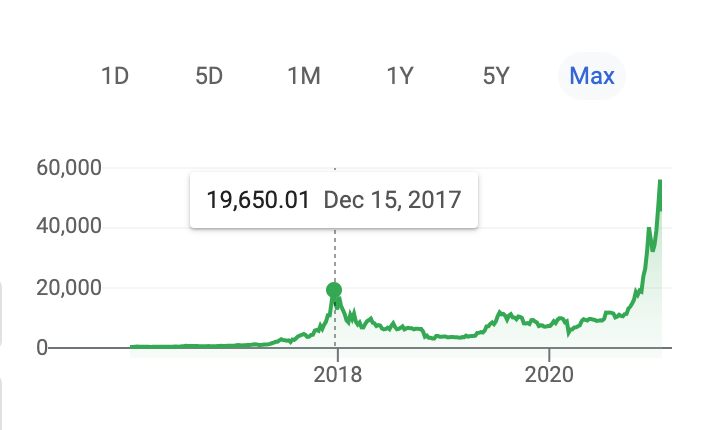Adam Tooze over at Substack:
I was forced to talk about bitcoin this week. On a podcast (in German).
The discussion was triggered by the remarkable surge in bitcoin’s value – the second great surge in the Ur-crypto’s turbulent history since it’s launch on 3 January 2009.
Lisa Splanemann, the journalist with whom I do the podcast, has been pushing the topic for a while. I was reluctant.
Money talk is political talk. We should be selective in the political talk we engage in. I don’t like the politics of crypto/bitcoin.
Money is an expression of social power. In particular, it is an amalgam of the power and confidence leveraged by the state and capital. All actual monies, whatever form they are cast in, have an element of “fiat” about them.
As the Merriman-Webster dictionary helpfully explains: “fiat: a command or act of will that creates something without or as if without further effort. According to the Bible, the world was created by fiat.”
The fiat money world is the world that we have inhabited since the collapse of the Bretton Woods system between 1971 and 1973. It is normally contrasted to the gold standard world that preceded it. But are gold and “fiat” really that different? To back a currency with gold is a political choice too, anchored in structures of expectation on the part of creditors, debtors and investors, on systems for gold production, storage, relationships between banks and central banks, in other words structures of power.
More here.

